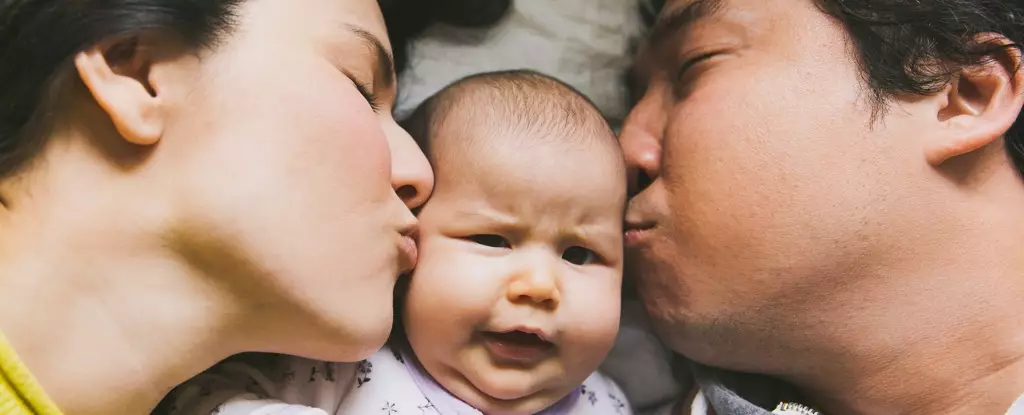Kissing a newborn is often viewed as an innocent act of affection, a gesture that celebrates the joy of new life. However, beneath this well-meaning intention lies a significant risk: the potential transmission of harmful pathogens that can pose serious health threats to the vulnerable infant. This article aims to shed light on the critical reasons why intimacy with newborns, particularly through kissing, should be approached with caution.
At birth, a baby’s immune system is still in its infancy, lacking the robust defenses found in adults and older children. In the first few months of life, infants are particularly susceptible to infections due to a deficiency in key immune cells like neutrophils and monocytes. These cells are essential for combating infections; thus, a newborn’s inability to effectively respond to pathogens can lead to serious complications. For instance, infections that may present as mild illnesses in adults can swiftly evolve into life-threatening conditions when it comes to newborns.
A prime example of such a risk is the herpes simplex virus. While this virus may simply cause cold sores in adults, it can lead to severe outcomes in newborns. If a baby contracts the virus, the potential consequences range from localized infections limited to the skin or oral cavity to systemic diseases affecting vital organs. The situation becomes even more precarious for infants less than four weeks old, who are at the highest risk for severe infections.
In addition to the herpes virus, newborns face threats from various bacteria that typically do not harm older children or adults. One notorious example is Group B Streptococcus (GBS), a common inhabitant of gastrointestinal and genital tracts in humans. While it remains harmless in the majority of healthy adults, it can lead to dire infections in infants, resulting in sepsis, pneumonia, and meningitis. Similarly, certain strains of E. coli, which are harmless in adults, can be deadly for newborns, leading to pneumonia and sepsis. These bacterial infections often manifest with rapid onset and can have serious, lasting effects.
This underscores the importance of vigilance from parents and caregivers, particularly during the critical early months of a baby’s life. The sheer risk of exposure to such infectious agents should inform decisions surrounding physical interactions with the newborn.
As the guardians of their child’s health, parents should feel empowered to establish boundaries when it comes to visitors and their interactions with the infant. It is not only reasonable but necessary to ask individuals to avoid kissing or holding the baby if they have active infections or even cold sores, which could harbor the herpes virus. The health and well-being of the newborn should always take precedence over social niceties.
Conversely, visitors should be understanding and supportive of these boundaries. If a visitor truly cares for the newborn and their family, they will respect requests that promote the child’s safety. The notion of “overreacting” should be dispelled; instead, it should be embraced that proactive measures are acts of love and responsibility.
Should visitors feel the need to express their affection, there are safer alternatives to kissing a newborn. Engaging in physical contact such as kissing the baby’s feet or the back of their head minimizes the risk of transmitting infections compared to kissing the mouth or face. Basic hygiene practices, such as thoroughly washing hands before handling the infant, also play a crucial role in safeguarding the baby’s health.
Moreover, individuals suffering from any communicable illness should reconsider their visits. If contact is unavoidable, wearing a mask and maintaining distance can help reduce the risk of infecting the child. These precautions may seem excessive, but given how fragile a newborn’s health can be, they are essential.
While the instinct to shower a newborn with love and affection is entirely human, it is vital to recognize the potentially dangerous consequences of such actions. Understanding the vulnerabilities of a newborn’s immune system can help shape our interactions and promote a culture of safety around these precious lives. In celebrating new arrivals, we must also commit to safeguarding their health, ensuring that love does not unintentionally lead to harm.

